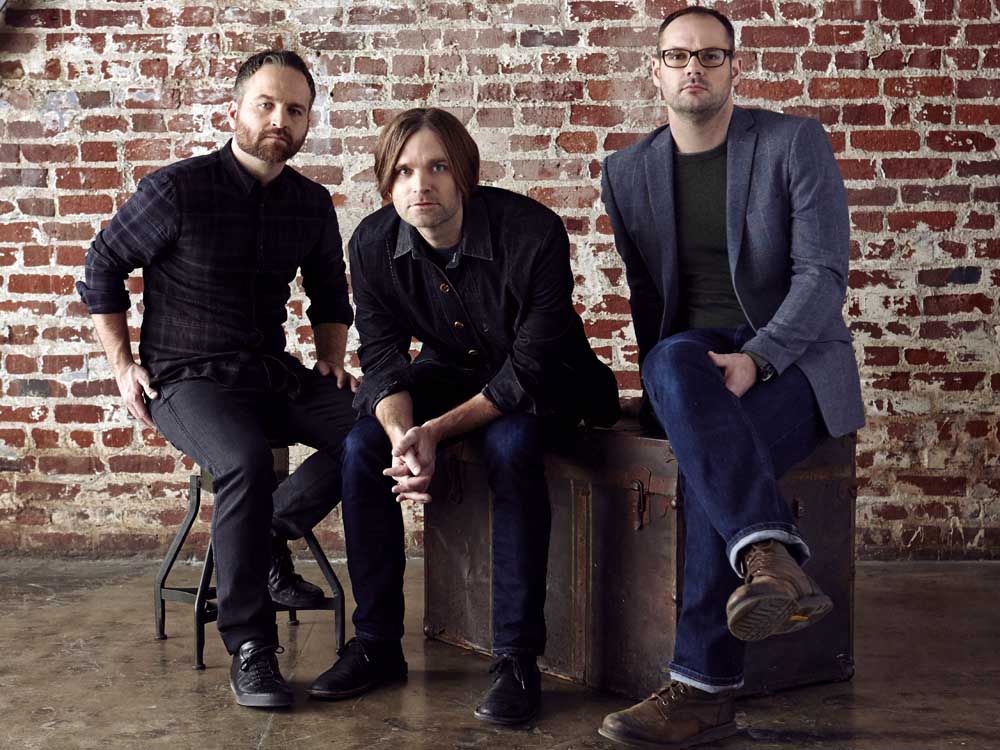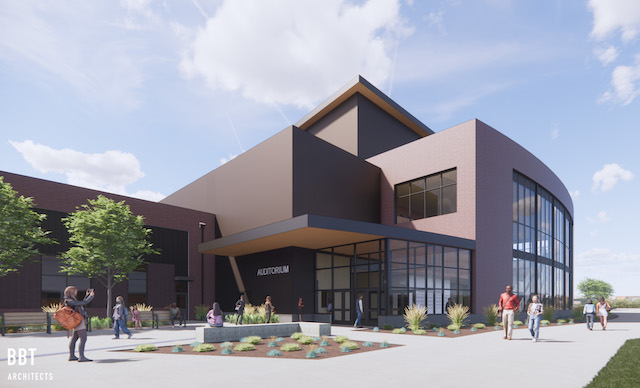Death Cab For Cutie returns to Bend
Published 12:00 am Friday, July 3, 2015

- Submitted photoDeath Cab For Cutie performed in Bend for the fifth time on Thursday.
It’s a new day for Death Cab For Cutie, as bassist Nick Harmer puts it.
The Bellingham, Washington, indie-rock darlings have seen more than their share of changes in recent years. The band released its first album in close to four years, “Kintsugi,” in March, and is hitting the road hard. The band was in Paris last Thursday; this week, it returned to the states; and Thursday, it will play the Les Schwab Amphitheater for the fifth time (and third time headlining) with fellow alt-rock stalwarts Built to Spill.
They’ll do so for the first time without guitarist and producer Chris Walla, who’s been with the band since the beginning (he even contributed guitar to the 1997 cassette release “You Can Play These Songs With Chords,” which was essentially a Ben Gibbard solo album under the Death Cab name). Dave Depper and Zac Rae have been filling in for the tour, switching off on guitar and keyboards.
“We have a couple new members, players playing with us onstage, and they’ve added a whole new sonic aspect and complexity with what we’ve been able to do with the material,” Harmer said. “It’s a very exciting time. There’s a lot of electricity about not only what we’re doing now and where we’re at as far as live shows, but also what’s ahead, what our next album may be that’s starting to take shape and what we might be able to do with that.”
Although the band isn’t trying to get ahead of itself. Harmer says he and the remaining core group — singer, guitarist and main songwriter Gibbard and drummer Jason McGerr, who joined in 2003 for the band’s fourth album, “Transatlanticism” — are “really happy with the album we’ve made.”
In past interviews, Gibbard has called the album a return to the kind of things the band does best — namely, guitar-driven indie pop with literate, story-driven lyrics. Reviewers have agreed, with many calling the album a return to form. Harmer, who has been in the band since it became a band after growing out of Gibbard’s solo project, agrees — to an extent.
“I do feel like in some ways this is a little bit of a return to form for us, although what that form is, is wildly different for a lot of people, depending on their entry point into our catalog,” Harmer said. “It’s hard to know. Is it a return to, like, ‘Transatlanticism’ form? A return to ‘Plans’ (2005) form? A return to ‘We Have the Facts (and We’re Voting Yes,’ 2000) form?”
For Harmer, the album is more a return to form in that the band didn’t overthink any portion of it. Part of this was due to the input of producer Rich Costey, known for his work with Muse, Jane’s Addiction, Foster the People and others. The sessions for “Kintsugi” were the first time Death Cab used an outside producer; every other album the band has released was produced by Walla.
“The history of this band has always been kind of a blessing and a curse in the studio,” Harmer said. “We’re all very acutely aware of what we’ve done in the past, and maybe on our other albums we would have made decisions like, ‘We shouldn’t do this in this song because we’ve already done something like it in the past.’ Rich was good at saying, ‘That’s what you’re good at doing, so why don’t you just do that? Don’t second-guess yourselves.’ … He really did push us in places that I think we needed to be pushed in.”
There’s certainly a long history for the band to draw from and be aware of. “Kintsugi,” named for a style of Japanese pottery art, is the band’s eighth studio set, and fourth to be released on major label Atlantic Records, in conjunction with indie Barsuk.
Prior to signing with Atlantic for “Plans,” which spawned singles “Soul Meets Body,” “Crooked Teeth” and “I Will Follow You Into the Dark,” one of the band’s most popular singles, the group released four well-received albums, including two concept records, “Transatlanticism” and “We Have the Facts and We’re Voting Yes.”
While Gibbard is and always has been the band’s main songwriter, the process has grown to be more collaborative over the years, and “Kintsugi” was no exception. Harmer has a co-writing credit on the album’s first track, “No Room in Frame.”
“In the beginning, maybe on the first album, there was a real strict script, but over the years (Gibbard has) definitely become more open to collaboration,” Harmer said. “There are a lot of places to find some ownership of the songwriting, certainly, in the performances and the recording.”
Walla, despite not producing “Kintsugi,” features on its tracks and has a songwriting credit. He announced to the band he was leaving in the middle of recording the album, but there was no real tension involved, according to Harmer.
“The word I can use was a sense of relief when he told us,” Harmer said. “For a number of years now, we’ve all known Chris was sort of being pulled in two different directions, one as a producer doing his own projects, and the other as the producer of this band and the guitar player in this band. His producing career outside (the band) definitely mandated he stay at home and be in the studio to have the freedom to take projects as they come up, and his career in the band mandated he commit 18 months to two years of being on the road touring after an album was released.
“We saw it kind of preying on him over the years, so (him quitting) in a lot of ways allowed us to focus in on the music we were making together,” Harmer continued. “He felt that if this is going to be the last album we make together, let’s make it a reflection of the 17 years we made music together, and concentrate on making it amazing and not let it fall apart in front of us. Chris didn’t want that to happen, and we didn’t want that to happen.”
— Reporter: 541-617-7814, bmcelhiney@bendbulletin.com
Editor’s note: This article has been corrected. In the original version, the name of Death Cab for Cutie’s guitarist Dave Depper was misspelled. The Bulletin regrets the error.






